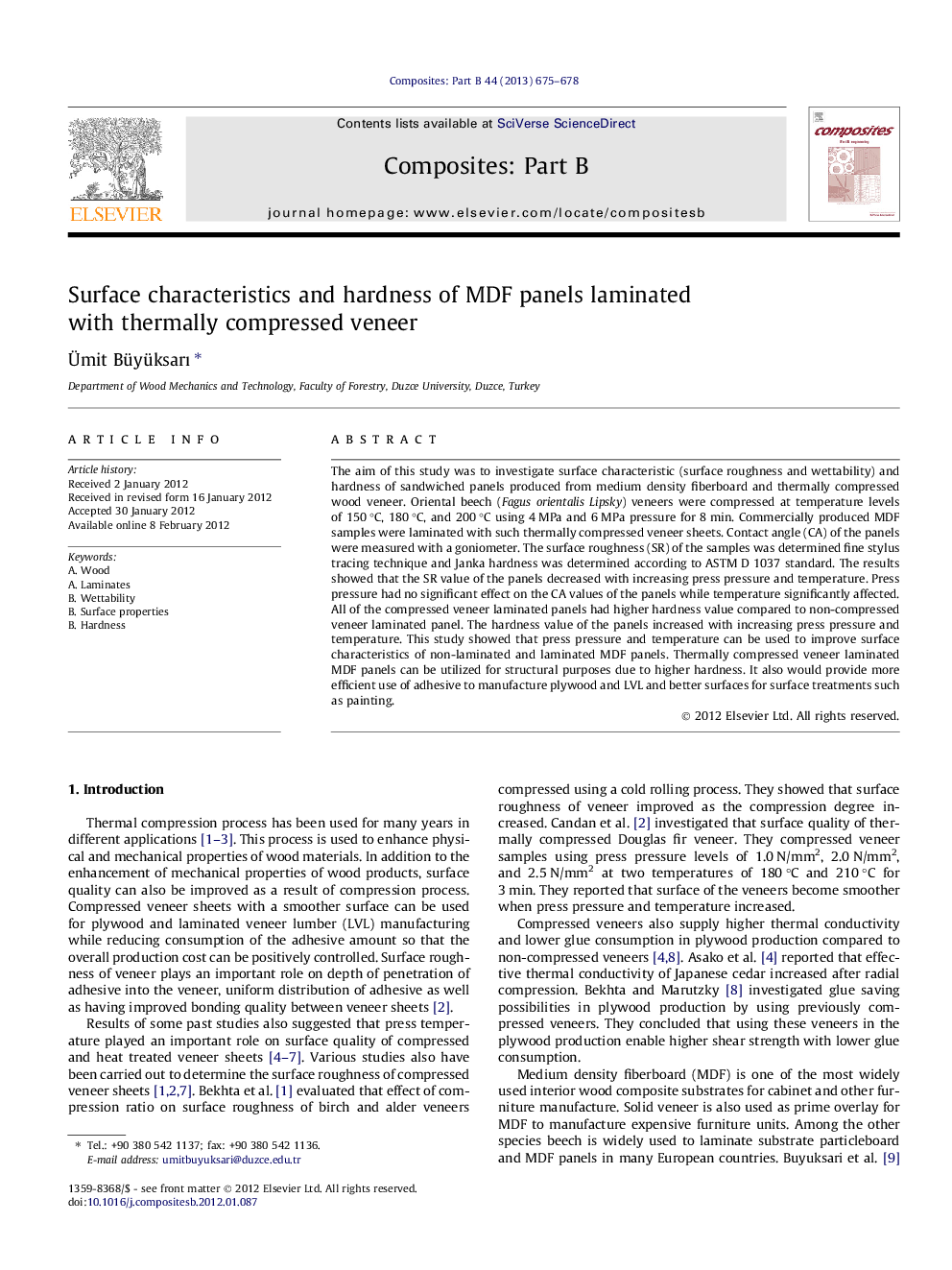| Article ID | Journal | Published Year | Pages | File Type |
|---|---|---|---|---|
| 818445 | Composites Part B: Engineering | 2013 | 4 Pages |
The aim of this study was to investigate surface characteristic (surface roughness and wettability) and hardness of sandwiched panels produced from medium density fiberboard and thermally compressed wood veneer. Oriental beech (FagusorientalisLipsky) veneers were compressed at temperature levels of 150 °C, 180 °C, and 200 °C using 4 MPa and 6 MPa pressure for 8 min. Commercially produced MDF samples were laminated with such thermally compressed veneer sheets. Contact angle (CA) of the panels were measured with a goniometer. The surface roughness (SR) of the samples was determined fine stylus tracing technique and Janka hardness was determined according to ASTM D 1037 standard. The results showed that the SR value of the panels decreased with increasing press pressure and temperature. Press pressure had no significant effect on the CA values of the panels while temperature significantly affected. All of the compressed veneer laminated panels had higher hardness value compared to non-compressed veneer laminated panel. The hardness value of the panels increased with increasing press pressure and temperature. This study showed that press pressure and temperature can be used to improve surface characteristics of non-laminated and laminated MDF panels. Thermally compressed veneer laminated MDF panels can be utilized for structural purposes due to higher hardness. It also would provide more efficient use of adhesive to manufacture plywood and LVL and better surfaces for surface treatments such as painting.
